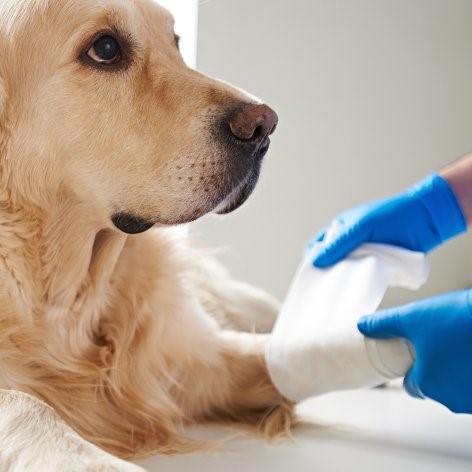Heartworms can be very dangerous for dogs. Heartworms are different from other worms infecting our pets, as they primarily infect an animal's heart, lungs and circulation, rather than their gastrointestinal system. It can take years for signs of a heartworm infestation to show, and once recognised, it can be challenging to treat. If left untreated, heartworm disease is nearly always fatal. So it is good to understand how your dog may get heartworms, to help prevent them.
Causes of Heartworm in Dogs
While heartworms can infect cats and ferrets, dogs are their natural host.
All dog ages and breeds can be affected. When a dog has a heartworm infection, the immature (larval) form, called microfilariae, circulate in the their bloodstream. These microfilariae usually make their way into the blood via mosquito bites. Once in the new host (your dog), they develop into adult worms which live in the heart and major blood vessels.
Symptoms of Heartworm in Dogs
Symptoms of heartworm infection can take a long time to show and are usually only apparent when a dog has many adult worms. This is because when left untreated, worms can reproduce and grow, and many adult worms can live in the heart. When here, they interfere with the functioning of heart valves and major blood vessels. This disturbs the blood flow and puts the heart under immense strain.
Heartworms cause a dog to cough. Infected dogs might also show a shortness of breath or lack of stamina. In severe cases, their abdomens can swell with fluid, resulting in and severe breathing difficulties can occur.
Heartworm Treatment for Dogs
Treating an adult heartworm infection, where mature heartworms are living in an animal's blood vessels or heart, is dangerous and tricky. It needs to be closely managed by a veterinarian.
With heartworms, prevention is without doubt better than cure. If heartworm is prevalent in your area (your vet, fellow pet owners and levels of mosquitoes can give you an indication of this), year-round prevention is essential as even one missed dose can put your dog at risk of heartworm disease.
Heartworm prevention should begin at six to eight weeks of age and can be
- Monthly (in a spot on or tablet form - often combined with other worming or flea preventatives for ease), or
- Yearly via an injection.
Always speak to your vet if you have concerns. If you think your dog or cat may have heartworm , there are treatment options available, however they need to be closely managed by your veterinarian.




